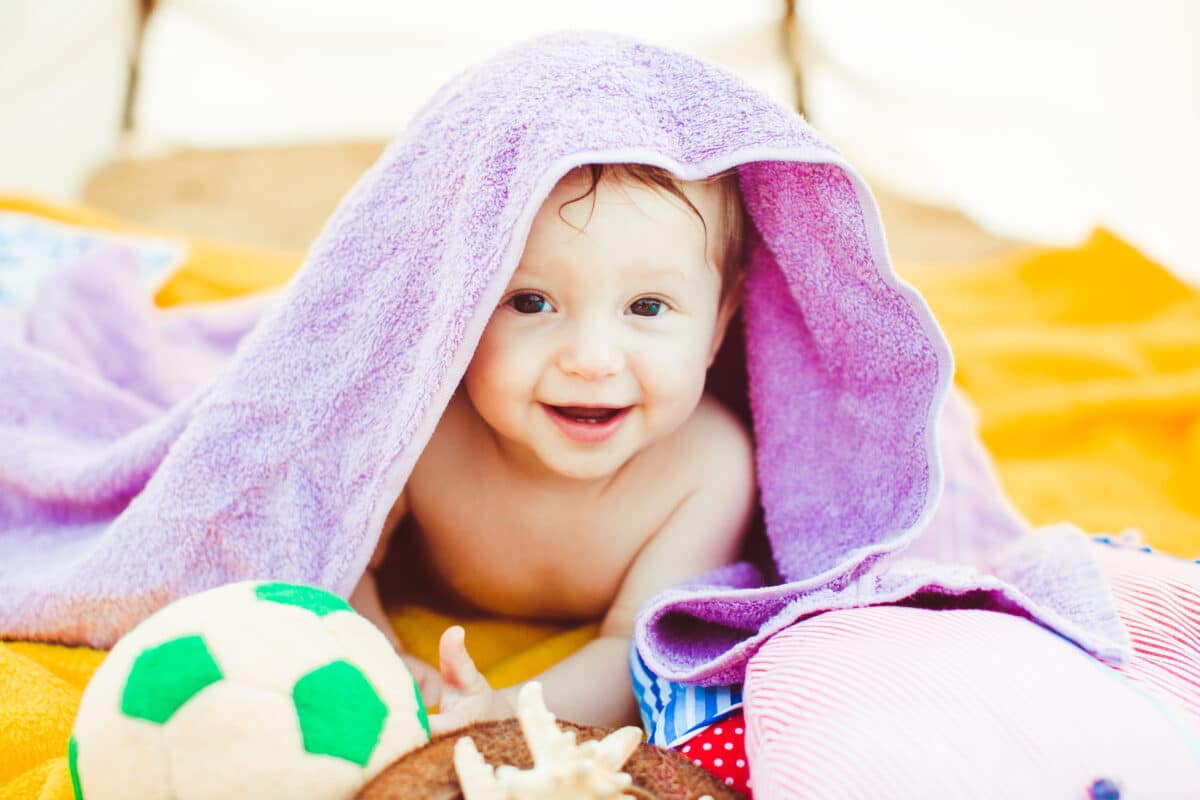What all parents need to know about Baby’s first smile!
New-born babies will smile in their sleep. Sometimes a smile in the early weeks of life is simply a sign that your little bundle is passing gas. But starting between 6 and 8 weeks of life, babies develop a “social smile” an intentional gesture of warmth meant just for you. This is an important milestone. This smile means that the baby is growing up and starting to adapt the human behaviour usually babies.
This will increase as they start to understand that they can get the elder’s attention. This is one of the most important indicators that will show the advancement of the baby’s brain and will be a check whether the communication skills are in track.
In some cases, even if we try the babies wouldn’t give a grin or smile sometimes the babies take some time for developing the smile on their face. Encourage the baby by talking to them often (make sure you give her time to “respond”), making eye contact frequently, and smiling at her throughout the day. And don’t be afraid to get silly: Making funny faces or noises, imitating animal sounds and behaviour, blowing raspberries on your baby’s belly, or playing a game of peek-a-boo may push the baby’s smiley button on.
If the child is prematurely born, please do give a few extra weeks or a month. In general, the more premature the baby is the more time it takes to develop the brain. Your baby’s reflex smile will disappear by time she’s 2 months old, and her first real one will make an appearance somewhere between one-and-a-half to 3 months (or 6 and 12 weeks) of life.
You can tell the difference between a reflex and real smile by the timing and duration. Generally, reflex smiles tend to be shorter and occur randomly, when the baby is sleeping or tired. Real smiles, on the other hand, occur in response to something, like seeing her mama’s face or hearing a sibling’s high-pitched voice, and they are consistent.
At first, your little guy’s happy face will be in response to a mix of vocal and visual stimulation. Therefore, he/she may light up from watching you sing a favourite lullaby or talk him through a particularly yucky diaper change. Later, when the vision improves, simply seeing the face of favourite people will be enough to make the baby crack a smile.
You’ll be the recipient of most of your baby’s smiles, but they will also exchange grins with others (that is until stranger anxiety kicks in at around 6 months). As your baby gets more smiling practice and enjoyment from seeing people’s reactions they will start. By 5 months, your babe may surprise you with full-out belly laughs and squeals of excitement.
Baby’s first smile is an incredibly precious and exciting milestone that fills parents’ hearts with joy and wonder. It’s a beautiful moment that signifies important developmental progress and establishes a strong emotional connection between parent and child. In this blog post, we will explore everything parents need to know about their baby’s first smile, including its significance, when to expect it, and how to cherish and nurture this special milestone.
Baby’s first smile is an unforgettable moment that holds immense significance in a parent’s life. It’s a joyful indication of your baby’s growth, social connection, and emotional development. By understanding the importance of this milestone and nurturing it with love and responsiveness, you can further strengthen the bond with your baby and create lasting memories. Cherish these precious moments and celebrate the remarkable journey of your child’s early development, knowing that each smile is a beautiful reflection of the love and care you provide.
If your baby is not smiling within three months, then please do visit us at Jeevaniyam. Our doctors would check the babies physical health and the brain development through several in house assessment techniques and help the baby achieve their mental growth.

